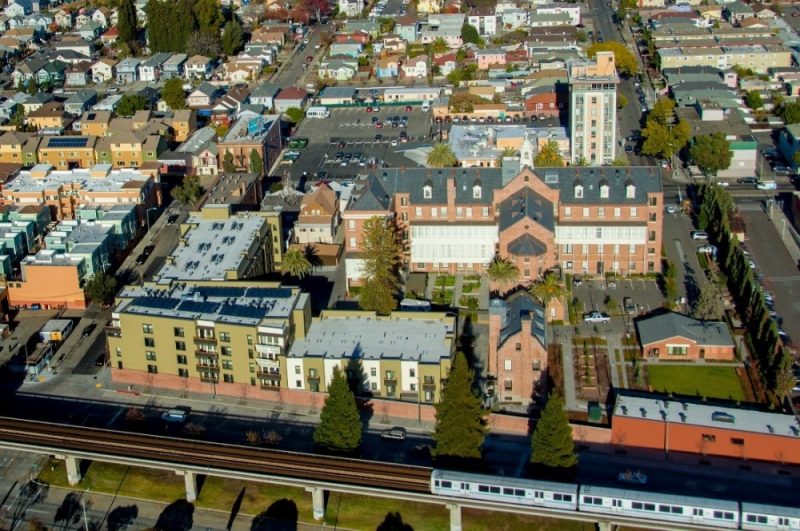December 2020

Image: Terraza Palmera at St. Josephs by Steve Proehl
The Solar on Multifamily Affordable Housing (SOMAH) program symbolizes a long-term and deep investment in the wellbeing of California’s most vulnerable communities.
In 2020, Californians were dealt historic wildfires, extreme heat, and power blackouts, all in the midst of a pandemic. These intersecting public health and climate crises continue to change daily life as we know it. California’s most vulnerable communities, low-income communities of color, have endured the greatest harm. The widening socioeconomic gap, health disparities of COVID-19, and lack of resilient energy infrastructure have exposed the failure of lawmakers to address the connection between environmental injustice and systemic racism.
Building resilience before a disaster ensures that communities traditionally left behind have access to adequate healthcare, stable housing and food security, technology resources and a consistent income. One in three households in the United States face challenges paying for the cost of energy (U.S. Energy Information Administration, Residential Energy Consumption Survey 2015). We have struggled with the impacts of the pandemic for more than a year. We know that our collective health and safety depends on both in-home resilience and economic support to adhere to stay-at-home measures. In-home resilience means, first, that people have access to shelter, and second, that they have access to resources that meet their needs while sheltering in place.
The Solar on Multifamily Affordable Housing (SOMAH) program is an unprecedented statewide investment in clean energy serving low-income environmental justice communities. While over 17% of the state’s Black and Latinx populations reside in the top 10% of the most environmentally burdened communities, fewer than 3 percent of the state’s white population live in these same communities. The greatest disparity is for children of color under the age of 10 (CalEnviroscreen 3.0 analysis). In the absence of statewide rent forgiveness and sustained basic income, solar energy can provide critical financial relief to Californians and help flatten the curve by making it easier for people to maintain their housing. In addition, the SOMAH program creates pathways to well-paying, essential jobs in the solar industry by building paid training opportunities into every project.
Building resilience requires deep collaboration and a community-based approach. Communities for a Better Environment was a co-sponsor and leading advocate for the legislation that created the SOMAH program. CBE has remained deeply engaged in ensuring the program yields maximum community benefits since its launch in July of 2019. We continue to actively participate by providing program outreach to stakeholders, advocate for programmatic changes to uplift projects in our communities and have been able reach more than 1,200 community members in East Oakland and Southeast Los Angeles combined.
The COVID-19 pandemic has increased attention to long-standing injustices in California and nationwide. Programs like SOMAH are a step in the right direction toward a jJust Ttransition to an energy system that is not only affordable and reliable but also healthy and just. By developing energy resilience, we are dismantling long-standing systems that have polluted and harmed environmental justice communities ushering in a new era of equity.
Learn more about how SOMAH is reducing the energy burden for California’s renters. Click here for more information.
To find out if your building is eligible for the SOMAH program please contact: Adele at adele@cbecal.org (East Oakland) or Terez at terez@cbecal.org (Southeast Los Angeles)
*Residential Energy Consumption Survey (2015), US EIA


